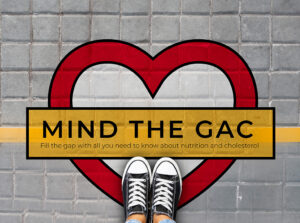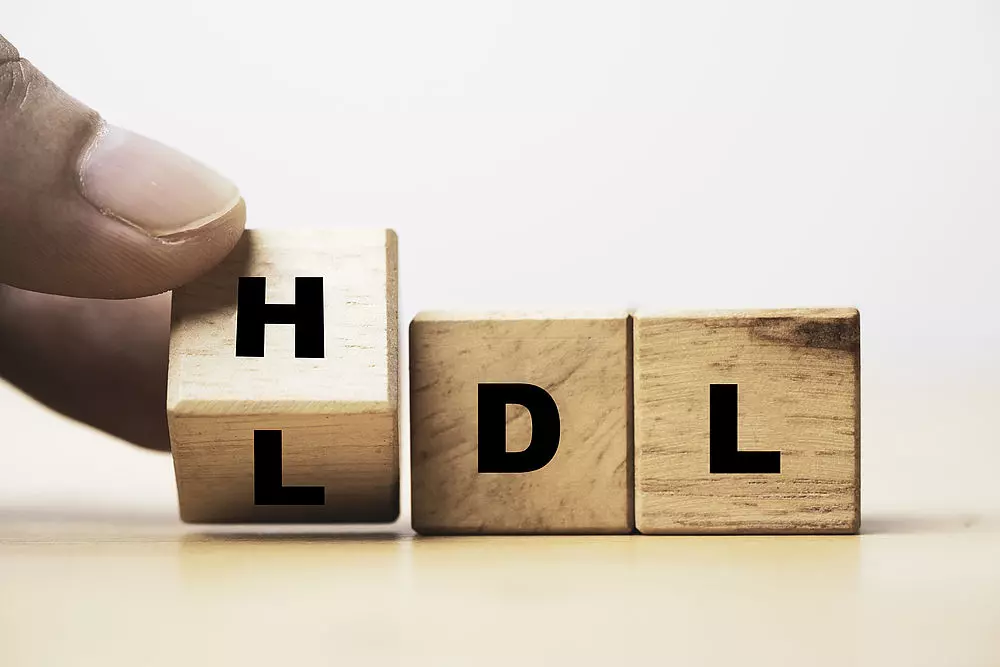At Daiichi Sankyo Europe, we understand that knowledge is power, especially when it comes to heart health. That’s why we launched the “Mind the GAC” campaign, standing for Mind the Gap in Awareness of Cholesterol, to help close the gap in understanding the critical role cholesterol plays in cardiovascular disease. This initiative is about more than just raising awareness; it is about empowering people with the tools and information they need to take control of their heart health.
What is cholesterol?
Cholesterol is an essential fatty substance in your blood that plays a crucial role in building healthy cells and supporting key body functions1. While your body needs cholesterol to function properly, maintaining the right balance is important for promoting heart health and overall well-being.
There are two main types of cholesterol:
- LDL (low-density lipoprotein), commonly referred to as “bad” cholesterol. High levels of LDL cholesterol can lead to fatty deposits in your arteries, which increases the risk of heart disease and stroke.2
- HDL (high-density lipoprotein) is known as “good” cholesterol. HDL-C cholesterol transports cholesterol to the liver where it can be removed from the body and is associated with protecting your arteries.3
By staying informed and managing your cholesterol, you can take proactive steps towards a healthier heart. If interested in learning more about the effects of LDL cholesterol on cardiovascular health, check out our previous blog article here.
The challenge of understanding cholesterol levels
Although many people understand that high cholesterol is linked to heart disease, fewer than 50% know their own cholesterol levels. This figure is even lower in the UK and the Netherlands, where fewer than 40% of people are aware of their cholesterol numbers.4 This lack of awareness highlights the need for better education on cholesterol and its connection to heart health.
It is important for people across Europe to understand the value of monitoring their cholesterol levels as part of managing the risk of heart disease. While treatment is available, prevention is key. Regular checkups and lifestyle changes, such as everyday movement, a heart-healthy diet low in salt, saturated fats, trans fats and cholesterol, not smoking, and avoiding excessive amounts of alcohol and caffeine can help prevent episodes such as heart attacks and strokes.5 In fact, the World Health Organization says that 80% of heart attacks and strokes are preventable with better awareness and monitoring.6
Without this knowledge, people are less likely to take steps to manage their cholesterol levels, increasing their risk of heart disease. Education about cholesterol is not just helpful, it is essential for preventing serious health issues and improving heart health.
Our solution: The Mind the GAC campaign
 During this year’s European Association for the Study of Diabetes (EASD) 2024 congress in Madrid, we engaged directly with the public, through our ”Mind the GAC” campaign, standing for Mind the Gap in Awareness of Cholesterol, to inform passers-by about how dietary habits can negatively impact cardiovascular health. We encouraged them to jump over a physical gap between two yellow lines, symbolising avoiding unhealthy habits.
During this year’s European Association for the Study of Diabetes (EASD) 2024 congress in Madrid, we engaged directly with the public, through our ”Mind the GAC” campaign, standing for Mind the Gap in Awareness of Cholesterol, to inform passers-by about how dietary habits can negatively impact cardiovascular health. We encouraged them to jump over a physical gap between two yellow lines, symbolising avoiding unhealthy habits.
Additionally, through social media and our dedicated webpage, we reached out to the wider public, providing practical tools and key information about cholesterol and heart health. We also developed a questionnaire that allowed visitors to assess their own knowledge of cholesterol and encourage them to take more ownership of their heart health.
Alongside our awareness efforts at EASD with the “Mind the GAC” initiative, we also conducted several street interviews involving both the general public and healthcare professionals to uncover gaps in cholesterol knowledge, particularly related to LDL-C, and motivate individuals to take a more active interest in learning more about heart health.
Ultimately, our goal is to make it easier for people to understand their cholesterol levels and feel empowered to protect their heart health.
Campaign results & public response
The “Mind the GAC” campaign was well received by the public and healthcare professionals alike. Not only did it raise awareness about cholesterol, but it also sparked conversations around the connection between nutrition, cholesterol, and heart health. We distributed 3,000 flyers, held seven on-site interviews, and reached over 4000 people through our social media post, which saw a high level of interaction (12% engagement rate). On our website, people assessed their knowledge of cholesterol and its link to nutrition by completing the quiz, showing great engagement with the campaign’s message.
Many participants shared that, before the campaign, they were unaware of the risks associated with high LDL cholesterol. Now, they feel empowered to act, whether by getting tested or making improvements to their diet and exercise routines. Healthcare professionals also appreciated the campaign’s accessible approach to cholesterol information, making it easier for them to have more effective conversations with their patients about preventing heart disease.
These efforts led to a noticeable increase in public awareness and a deeper understanding of the dangers of high LDL cholesterol. The campaign has demonstrated how education and awareness can empower individuals to take control of their heart health.
Conclusion
Your heart health is in your hands, and the first step toward protecting it starts with knowledge. Each small step, whether it’s getting your cholesterol checked or making heart-healthy choices, brings you closer to a healthier future.
By visiting our “Mind the GAC” campaign webpage, you can test your understanding, explore how cholesterol impacts your body, and discover practical, actionable steps to improve your heart health.


